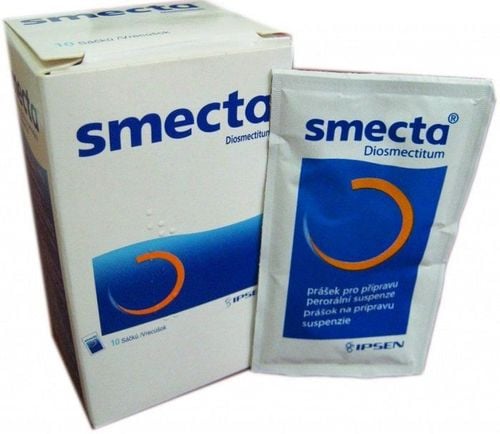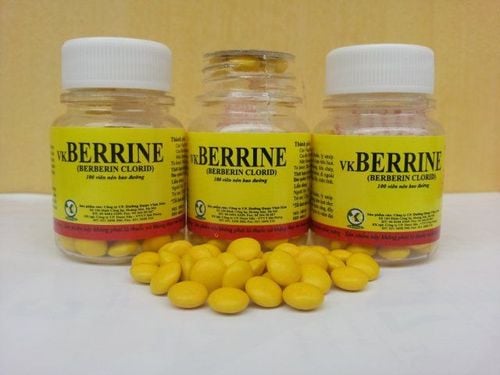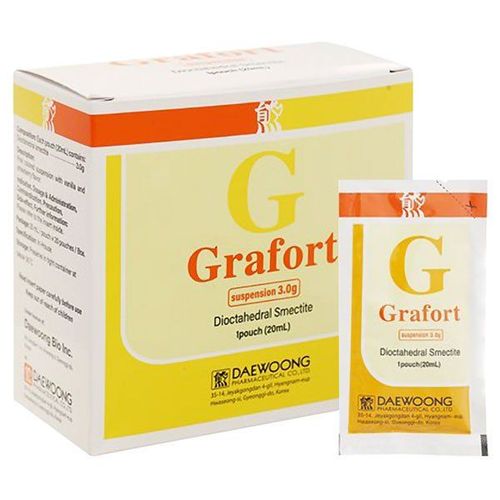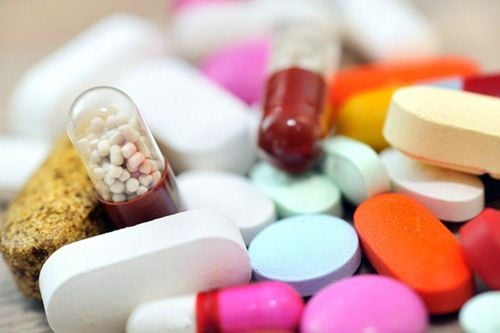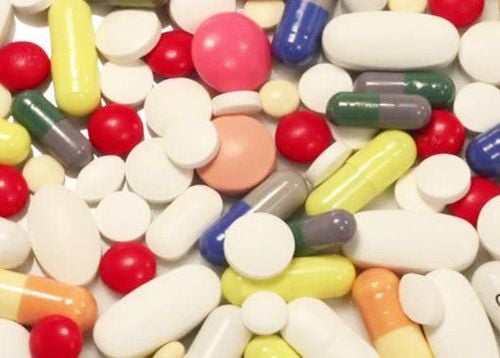This is an automatically translated article.
The article was professionally consulted by Doctor Department of Gastroenterology - Endoscopy, Department of Medical Examination & Internal Medicine - Vinmec Central Park International General Hospital.
Acute diarrhea is a condition in which loose, loose stools are short-lived and last no more than a few days. However, when diarrhea persists for weeks or is accompanied by severe abdominal pain, fever, dehydration, rectal bleeding, drowsiness, or vomiting accompanied by diarrhea, the patient should seek medical attention and receive treatment at the facility. Medican.
1. Causes of acute diarrhea
Diarrhea can go away in a few days without treatment by resting, drinking enough fluids, and being careful what you eat. However, patients with acute diarrhea should clearly understand the causes of diarrhea and the danger signs that make the patient unable to treat diarrhea at home but must go to a medical facility.
Causes of acute diarrhea include:
Viral infections. Acute viral diarrhea is the most common cause with mild to moderate symptoms lasting about three to seven days due to Rotavirus, Norovirus, and Adenovirus. Bacterial infection. Acute bacterial diarrhea causes more severe cases of food poisoning. Bacterial infections also cause severe symptoms, often with vomiting, fever, and severe abdominal pain, with watery stools. In more severe cases, stools may contain mucus, pus, or blood. Campylobacter, salmonellae and Shigella organisms are the most common causes of bacterial diarrhea and less common causes are Escherichia coli Yersinia and Listeria. Medicines that people take long-term can cause chronic diarrhea, like antibiotics. Parasites cause infections of the digestive system due to the consumption of contaminated water. Intestinal disorders such as inflammatory bowel disease including ulcerative colitis and Crohn's disease, irritable bowel syndrome (IBS), diverticulitis... Side effects of certain medications such as antibiotics, blood pressure medications, medications cancer treatments, gout medications, and antacids (especially those containing magnesium). Intolerance or allergy to foods containing artificial sweeteners and lactose intolerance can cause chronic diarrhea. Alcohol abuse can cause diarrhea. Laxative abuse Diabetic diarrhea can be a complication of diabetes. Radiation or chemotherapy can cause loose stools and diarrhea that can last up to three weeks after treatment ends. Certain cancers are more likely to cause diarrhea such as carcinoid syndrome, colon cancer, lymphoma, thyroid carcinoma, pancreatic cancer, and adrenal myeloma. After gastrointestinal surgery.
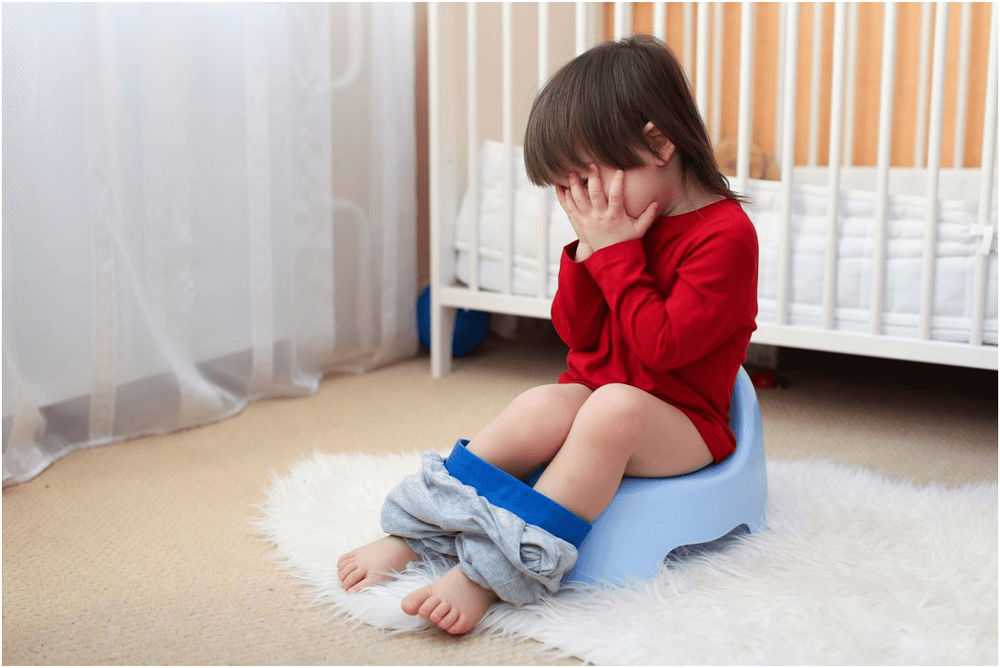
2. Monitor and treat acute diarrhea at home
To confirm if your acute diarrhea is related to any other serious illness, you should consult your doctor before self-treating and providing home care. After making sure that they can be cared for at home, people with acute diarrhea can take the following measures to help speed up their recovery and avoid complications of acute diarrhea such as dehydration, exhaustion, and damage to their health. life.
Replenish electrolytes:
The body will lose water due to acute diarrhea after each bowel movement, so it is important for patients to replenish water and electrolytes enough for the body by drinking filtered water, fruit juice. plants, about 2-3 liters (8-12 cups) are drunk evenly throughout a day. Ideally, doctors often recommend that people with diarrhea drink an electrolyte solution to replenish salt, potassium and other electrolytes that the body loses when having diarrhea, such as oresol solution.
Diet There is no specific food group that is best for treating diarrhea and doctors do not recommend that people with diarrhea follow the BRAT diet, which stands for bananas, white rice, apple sauce, and cake. toast (Bananas, Rice, Applesauce and Toast). All these foods are good, patients should use these foods but need to add other foods, not only BRAT diets, such as:
Potatoes Smooth peanut butter Skinless chicken or turkey. Legumes Cabbage Probiotic Supplement Probiotics are beneficial microorganisms for the digestive system to support the functioning of the intestines and help fight infections, helping people with diarrhea quickly recover. Probiotics are found in some yogurts and other fermented foods.

Treatment of acute diarrhea Most acute diarrhea does not require treatment, and some over-the-counter medicines can help you feel better. There are two medications that relieve diarrhea symptoms in different ways:
Loperamide (Imodium) slows the movement of food through the intestines allowing the body to absorb more fluids. Bismuth subsalicylate (Kaopectate, Pepto-Bismol) stimulates the absorption of fluids and electrolytes through the intestinal wall and is used to treat nausea, heartburn, indigestion, upset stomach, diarrhea and other temporary discomfort of the stomach and gastrointestinal tract. Carefully read the instructions on the package before use such as how to use, dosage, quantity, indications and contraindications of any medicine to use. Do not use more than recommended by the manufacturer because it does not make the disease heal faster. Note that over-the-counter diarrhea medications are not recommended in patients with symptomatic diarrhea with bloody stools or fever.
If there are any questions, the patient should contact the doctor for answers. Never give Kaopectate or Pepto-Bismol to children because it can cause serious health problems.
Monitoring disease status During home care and treatment, if you see the following signs, the patient needs to go to a medical facility as soon as possible:
Please dial HOTLINE for more information or register for an appointment HERE. Download MyVinmec app to make appointments faster and to manage your bookings easily.
References: Mayoclinic.org and Medicalnewstoday.com




